Lost Landscape 1 RAO Songqing
- Dimensions : 200 × 120 cm
- Year : 2007
- Medium : Acrylic
- Support : Canvas
- Signature : Signed and dated by artist
- Editions : Unique work
- Thèmes : Chinese contemporary art
- Ton : Dark
More informations
WORK
Rao Songqing's painting, with a lively and nervous line, seems to scream all the drama and melancholy of the world. And yet, faced with this fever of the touch, the composition of the canvases finds an astonishing harmony, born of the subtle use of color, where the shades of gray give them a particular softness.
By this visual balance created in these unreal landscapes, his paintings become witnesses and supports of our gaze on a current world in perpetual motion, where a swirling modernity, each day more significant, and a nostalgic vision of an idealized past are opposed. where everything seemed simpler to us. His landscapes should not be seen as mere physical representations of space; when the artist wanders through the forest, he embarks on a process where he first immerses himself in the nature that surrounds him, internalizes it, to finally externalize it in a poetic form.
ARTIST
Born in the Chinese province of Hubei in 1970, Rao Songqing graduated from the People's Liberation Army Academy of Arts in Beijing in 1991. His work is regularly exhibited in many cultural centers, museums and galleries in China. He lives and works in Beijing.
Rao's work is eminently contemplative and wandering, aspects that are reflected in the very title of his paintings. The artist is particularly inspired by the forest landscapes around Beijing in winter. It uses many layers and shades of gray and white, punctuated with rare colors. At first glance, his work with its poetic and hushed atmosphere echoes, both visually and in its themes, traditional Chinese painting. Rao thus gives us to see scenes of vast natural landscapes, where solitary travelers evolve, classic metaphors of the human condition. The author also seems to be inspired by ancient Chinese philosophical notions, such as Taoist emptiness (Wu 無), Confucian humanism or Buddhist interdependence. His inspired, energetic and precise brushstrokes evoke the spirit of Chinese calligraphy.
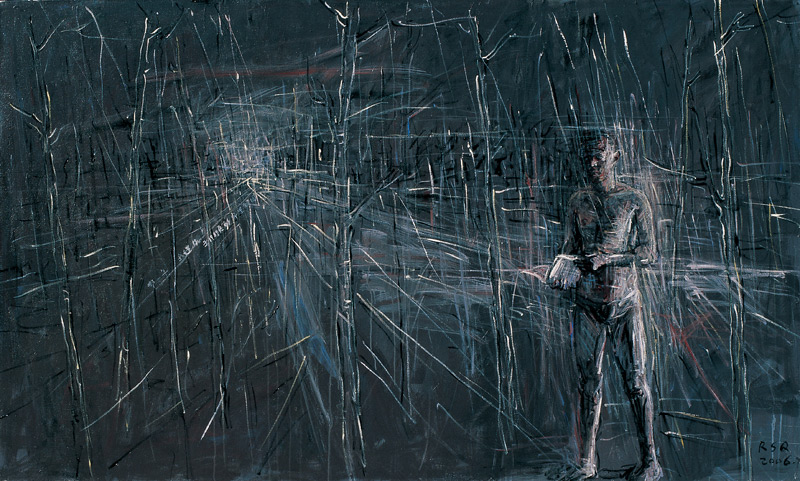
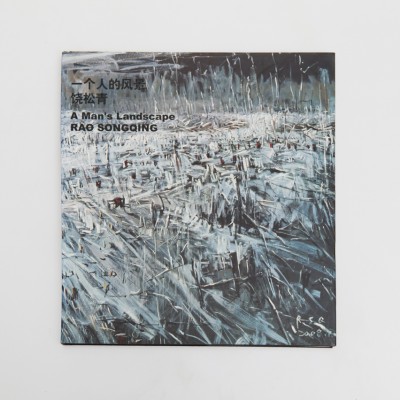 A MAN’S LANDSCAPE – RAO SONGQING
A MAN’S LANDSCAPE – RAO SONGQING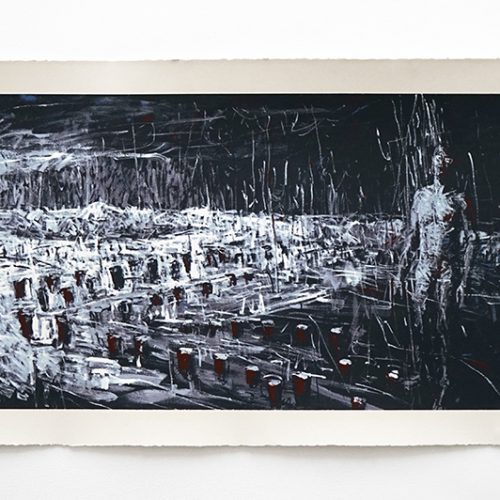 LANDSCAPE NO.6
LANDSCAPE NO.6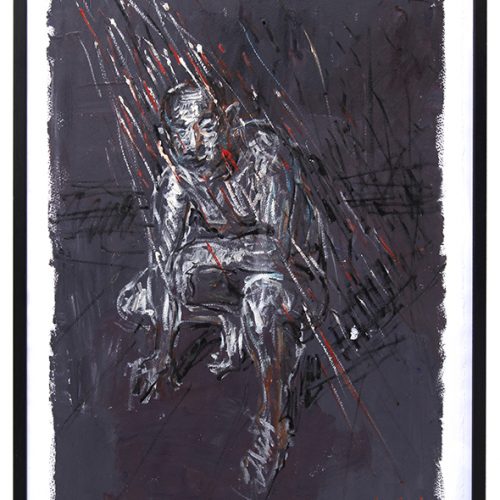 Living
Living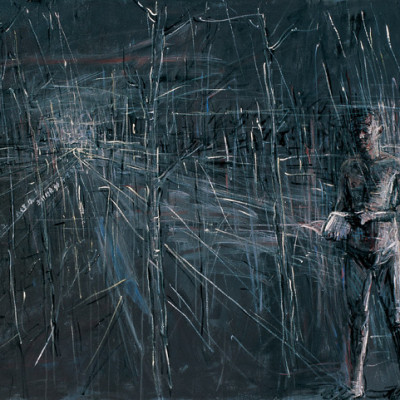 Lost Landscape 1
Lost Landscape 1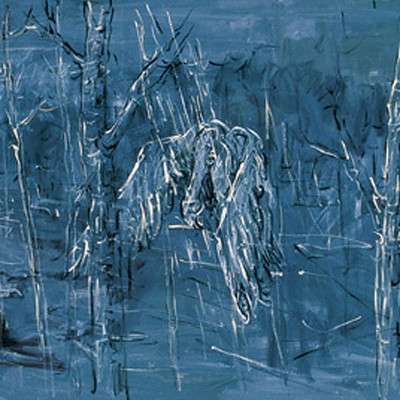 Lost Landscape
Lost Landscape